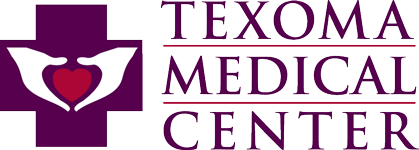The Teenage Years Can Be Challenging Enough, But Extra Support Can Help
June 17, 2020
 Psychiatrist Pradeep Tatagari, MD, MPH, and Medical Director at the TMC Behavioral Health Center, says he and his team focus on crisis management, coping skills and support for teenagers needing help. He explains that some of the common issues teens face include major depression, bipolar disorder, psychosis, schizophrenia, substance use, alcoholic or opioid intoxication, aggression, suicide attempts and post-traumatic stress disorder (PTSD). “Any of these conditions can lead to admission at TMC’s Behavioral Health Center, especially if they are at risk to themselves or others,” says Dr. Tatagari.
Psychiatrist Pradeep Tatagari, MD, MPH, and Medical Director at the TMC Behavioral Health Center, says he and his team focus on crisis management, coping skills and support for teenagers needing help. He explains that some of the common issues teens face include major depression, bipolar disorder, psychosis, schizophrenia, substance use, alcoholic or opioid intoxication, aggression, suicide attempts and post-traumatic stress disorder (PTSD). “Any of these conditions can lead to admission at TMC’s Behavioral Health Center, especially if they are at risk to themselves or others,” says Dr. Tatagari.
Seeking Help
When a child is in crisis and comes to the center, a treatment team evaluates their immediate needs and determines the best treatment. “A case manager, a doctor, a nurse and a psychotherapist meet with the patient and a detailed psychiatric and physical assessment is completed,” says Dr. Tatagari.
Once a patient is admitted, psychotherapist-led group sessions revolve around coping skills, managing depression and anxiety, and how to fare once the youth is back home. Case managers also involve the family members in therapy. Art classes, access to a gym and socialization are also available so patients can express themselves and not feel alone. “Some of our patients who have recurring issues don’t hesitate to come back here because they know it is a safe place to come,” explains Dr. Tatagari.
If your child needs help, no-cost assessments are available 24 hours a day, 7 days a week.
Call 903-416-3000, or toll-free 1-855-815-2417.
Safety is the Primary Goal
Educating the child’s family is crucial so they can work on parent-child conflicts and improve the communication within the family. Once a patient is well enough to go home, an aftercare plan is established so outpatient therapy can be continued. “If a child does not feel safe going home, we work with child protective services to place them in a safe environment,” says Dr. Tatagari. “Our number one goal for discharge is the child’s safety. We want them and the people around them safe at the time of discharge.”
Dr. Tatagari explains that a lot of families are afraid to bring their kids to a behavioral health facility, but there can be chemical imbalances in the brain or underlying medical issues that can cause behavioral problems. “If someone has diabetes or heart trouble, they go see a doctor. This is no different. We are working to overcome the stigma of seeking help for behavioral health conditions,” he says. “I get a lot of feedback from families who are so glad they brought their child here and got help. Some kids are resistant, but when they are staying here, they tend to open up because they are amongst their peers and they won’t be judged. We can help them on the road to recovery.”
Dr. Tatagari also recommends visiting the American Academy of Child and Adolescent Psychiatry at AACAP.org for a wide variety of helpful, easy-to-understand information. There are also suggestions about how to best talk to your child about COVID-19 and social distancing.
What to Look for in Adolescent Depression
The Centers for Disease Control and Prevention reports that suicide is the second-leading cause of death in young people ages 10 to 24. Dr. Tatagari says it can be hard to tell if a teen is depressed, but if you notice any of these behaviors, you should take notice and address them.
- Irritable moods
- Changes in sleep and eating habits
- Declining grades
- Reduced interest in hobbies or activities
- Reduced communication
- Isolation
- Referencing suicide
- Giving away favorite objects
- Feeling guilty
- Tiredness
